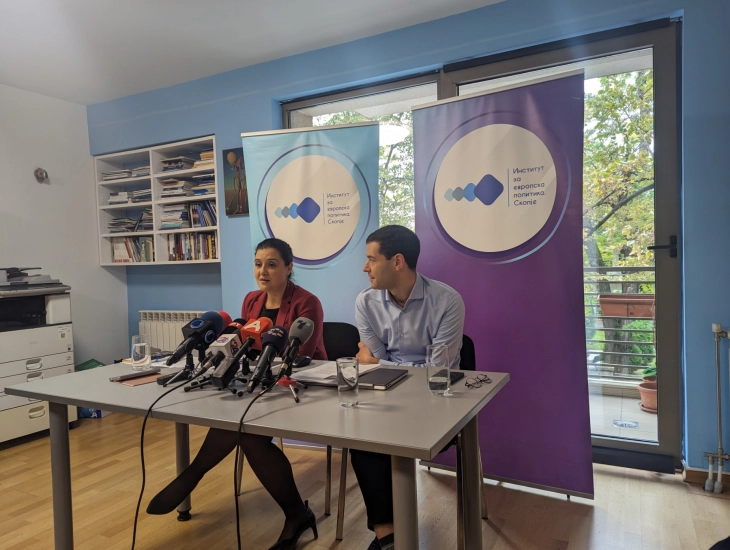The 2023 European Commission Progress Report, in comparison to the previous year, reveals an increase in the assessment of the country’s capacity to fulfill membership obligations only in the Economic and Monetary Policy chapter. However, there is growing concern over the lack of progress in the crucial areas of judiciary and the fight against corruption, particularly in Chapter 23, which falls under the Fundamentals cluster. This cluster, opening first and closing last, significantly influences the pace of negotiations.
Simonida Kacarska, President of the European Policy Institute (EPI), expressed worry about the declining assessments, noting that terms such as ‘no progress’ or ‘limited progress’ are more prevalent in the report, replacing the previously observed ‘some progress.’ Kacarska emphasized that the European Commission tends to be conservative in its evaluations, and the current scenario prompts reflection on whether Macedonia, having been a candidate for an extended period, has encountered challenges that are difficult to surmount without initiating accession negotiations.
Despite Macedonia’s overall commendable performance in comparison to other candidates, Kacarska highlighted the significant drop in assessments for progress made in the past year compared to 2022 and 2021. The most disconcerting aspect remains the lack of advancement in the judiciary and the anti-corruption fight, critical components of Chapter 23 within the Fundamentals cluster. Kacarska stressed the need for concerted efforts to improve these assessments, as persistent stagnation over the years is undesirable.
Addressing additional concerns, Kacarska pointed out the worrisome political polarization, parliamentary issues, and the absence of electoral reforms. She underscored the importance of addressing these challenges to enhance the country’s overall prospects for EU accession.





Comments are closed for this post.